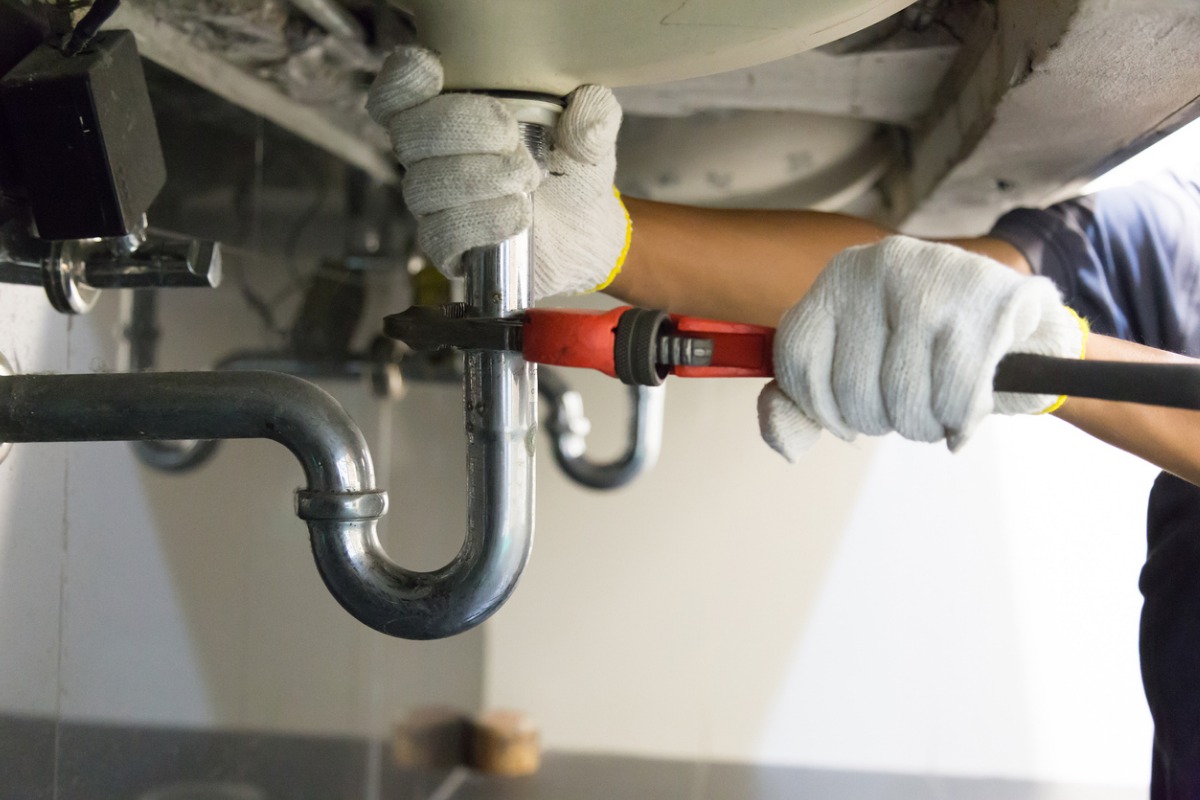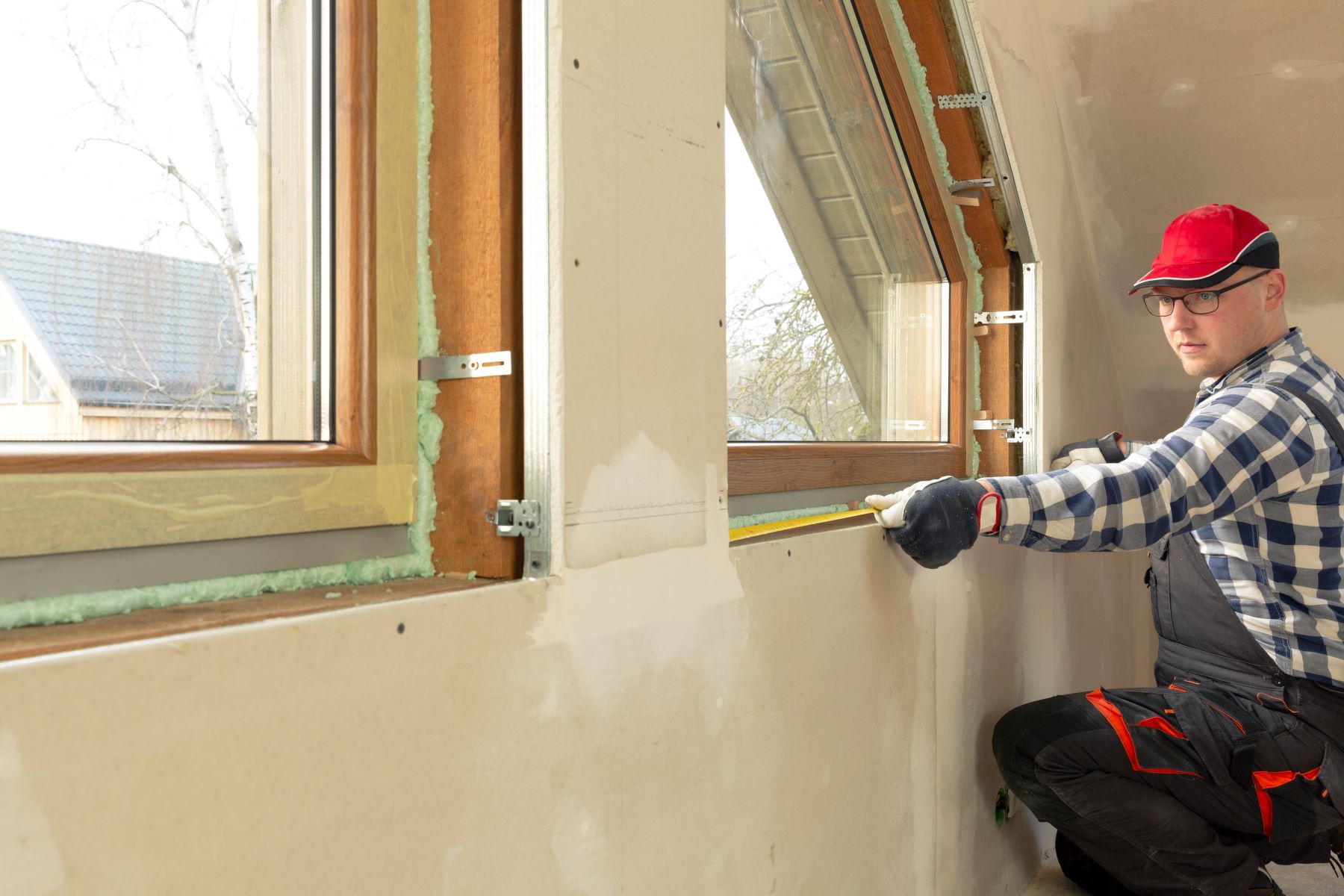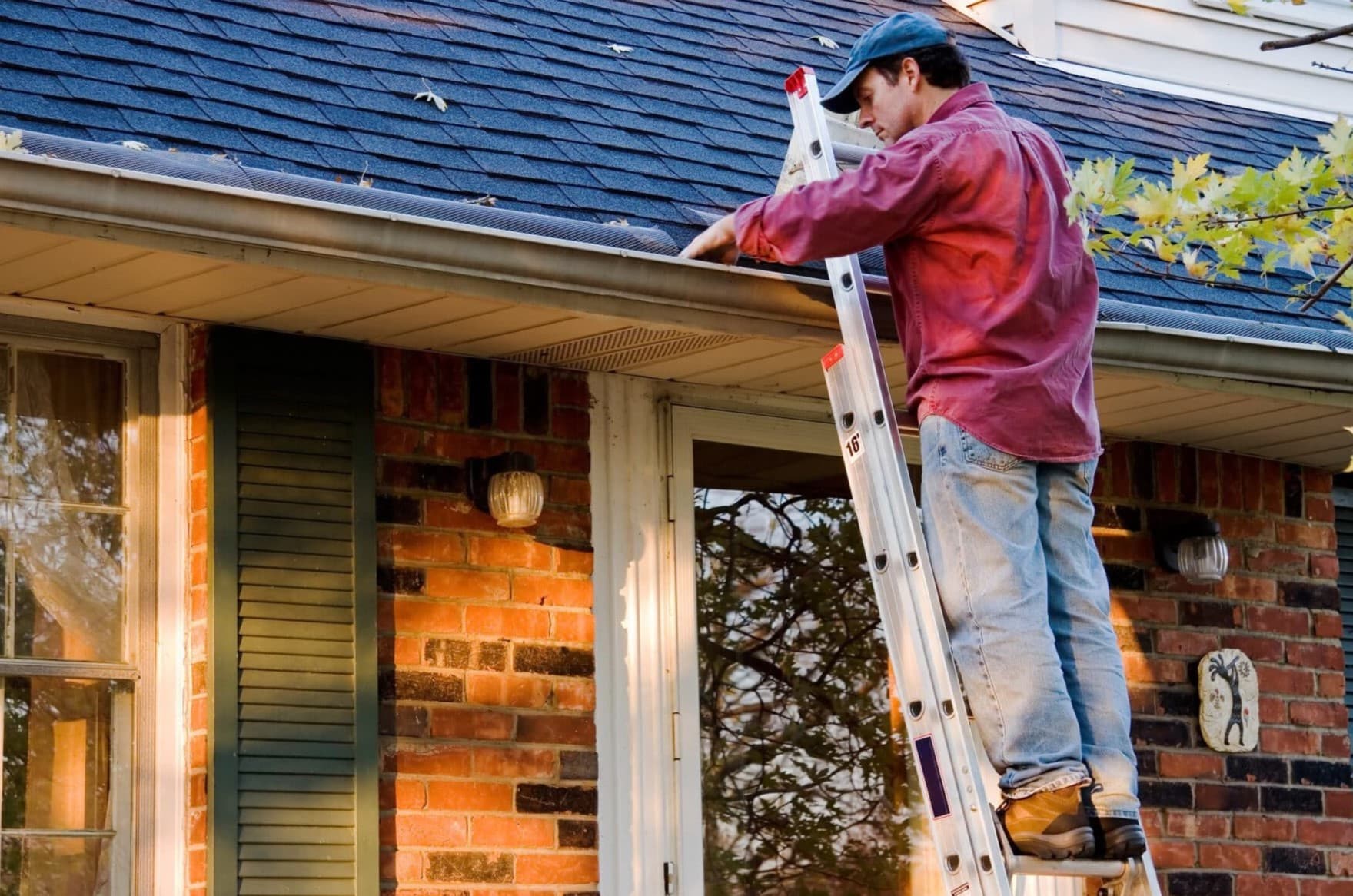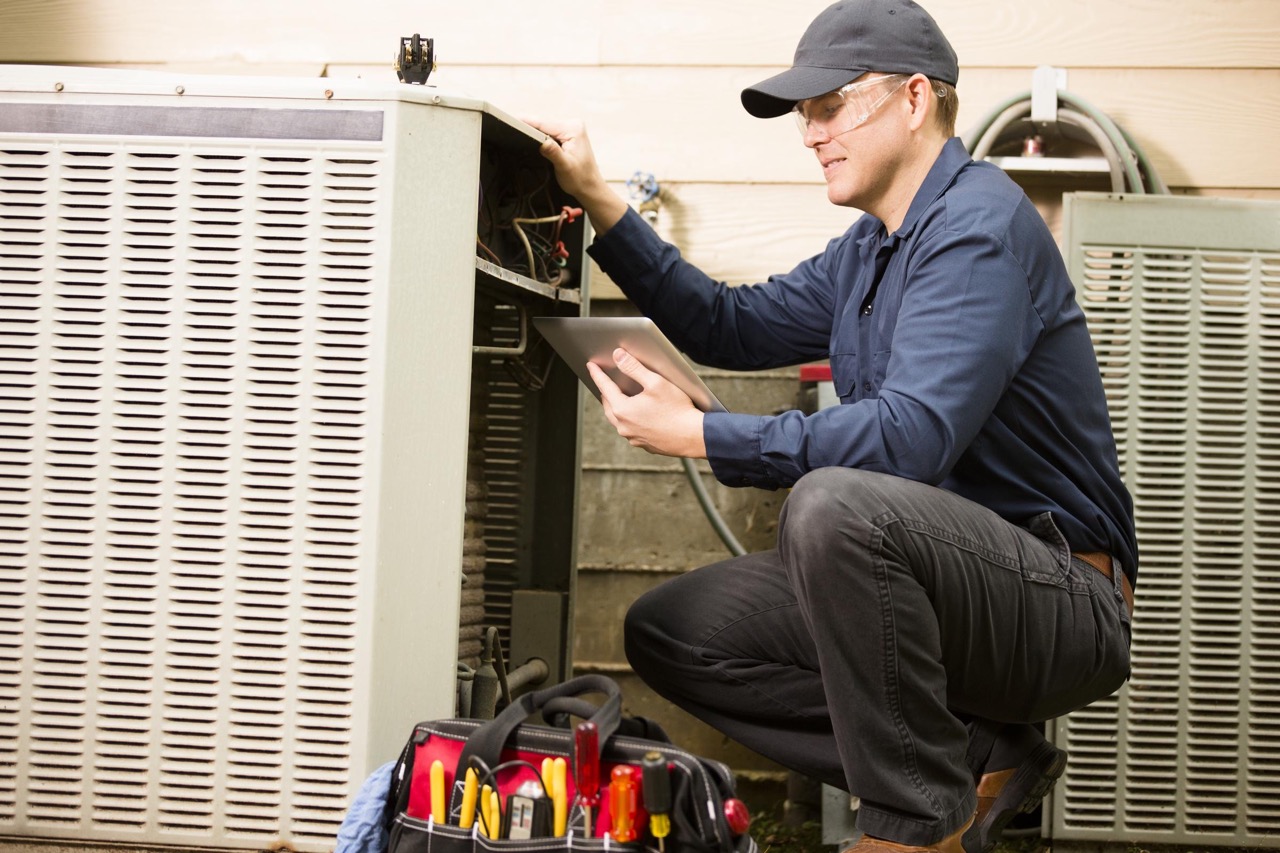Home>Home Maintenance>How Do I Get A State Grant For Home Repairs


Home Maintenance
How Do I Get A State Grant For Home Repairs
Modified: March 6, 2024
Learn how to get a state grant for home repairs and secure funding for your home maintenance needs. Apply today and take advantage of this valuable opportunity!
(Many of the links in this article redirect to a specific reviewed product. Your purchase of these products through affiliate links helps to generate commission for Storables.com, at no extra cost. Learn more)
Introduction
Welcome to our comprehensive guide on how to get a state grant for home repairs. Maintaining and repairing your home can be a costly endeavor, and sometimes unexpected expenses arise that require immediate attention. State grants for home repairs offer a valuable solution for homeowners who need financial assistance to address crucial repairs and improvements.
Whether you’re dealing with a leaky roof, faulty plumbing, or outdated electrical systems, state grants provide an avenue to secure the necessary funds to make your home safe, comfortable, and visually appealing. In this article, we will walk you through the eligibility requirements, types of home repairs covered, the application process, required documentation, and tips for a successful grant application.
It’s important to note that state grants for home repairs are typically need-based and serve low-income households, elderly individuals, people with disabilities, or those residing in areas affected by natural disasters. Each state may have specific eligibility criteria, so it’s crucial to check with your local government or housing agency for detailed information pertaining to your region.
By providing financial assistance for essential repairs, these grants not only improve the quality of life for homeowners but also contribute to the overall appearance and value of the community. So, without further ado, let’s dive into the details and explore how you can secure a state grant for your home repairs.
Key Takeaways:
- State grants for home repairs help low-income homeowners, the elderly, and those affected by disasters. They cover crucial repairs like roofing, plumbing, and accessibility modifications, improving safety and livability.
- To secure a state grant, gather required documents, follow application guidelines, and communicate clearly. Even if your application is denied, explore alternative funding options for home repairs.
Eligibility Requirements
To qualify for a state grant for home repairs, you must meet certain eligibility requirements set by your local government or housing agency. While these requirements may vary slightly from state to state, there are some common criteria that you can expect. Here are the key factors to consider:
- Income Level: State grants for home repairs primarily target low-income individuals and families. The specific income limits vary based on the size of your household and the area you reside in. Generally, your household income must fall below a certain percentage of the area median income (AMI) to be eligible for assistance.
- Homeownership Status: You must be the owner of the property in need of repairs to be eligible for a state grant. Rental properties and properties owned by corporations or partnerships generally do not qualify.
- Residency: Most state grant programs require applicants to be legal residents of the state and, in some cases, have a minimum residency period. This ensures that the funds are allocated to residents who have a long-term commitment to the community.
- Priority Categories: Some grant programs give priority to specific categories such as elderly individuals, people with disabilities, veterans, or those living in areas affected by natural disasters. If you fall into one of these categories, you may have a higher chance of receiving assistance.
- Condition of the Home: The condition of your home plays a significant role in determining eligibility. Grants often focus on homes that pose health and safety risks, such as structural issues, plumbing and electrical hazards, or problems with heating and cooling systems.
It’s important to thoroughly review the eligibility requirements outlined by your state’s grant program. In some cases, there may be additional criteria you need to meet, such as being current on property taxes or having homeowner’s insurance. Be sure to gather all the necessary information and documents to support your eligibility before proceeding with the application process.
Remember, meeting the eligibility requirements does not guarantee approval for a grant. The availability of funds and the number of applicants can impact the selection process. However, by understanding and fulfilling the eligibility criteria, you increase your chances of securing a state grant for home repairs.
Types of Home Repairs Covered
State grants for home repairs typically cover a wide range of repairs and improvements that address health and safety concerns, energy efficiency, and accessibility issues. While the exact coverage may vary depending on your state’s program, here are some common types of home repairs that are often eligible for grant funding:
- Roof Repairs: Grants may cover the cost of repairing or replacing a damaged or leaky roof. This is crucial for preventing water damage, mold growth, and ensuring the structural integrity of your home.
- Plumbing and Electrical Systems: Grants can assist with repairing or upgrading outdated plumbing and electrical systems, including fixing leaky pipes, faulty wiring, or installing energy-efficient fixtures.
- Heating, Ventilation, and Air Conditioning (HVAC): Funds may be available for repairing or replacing HVAC systems to ensure proper heating and cooling, improving energy efficiency and indoor air quality.
- Accessibility Modifications: Grants can support modifications to make a home more accessible for individuals with disabilities or mobility limitations, such as installing ramps, handrails, or accessible bathrooms.
- Structural Repairs: If your home has significant structural issues or damage caused by natural disasters, grants may cover the cost of repairs to ensure the safety and stability of your property.
- Weatherization and Insulation: Grants may provide funds for adding insulation, sealing air leaks, and improving overall energy efficiency, resulting in reduced energy consumption and lower utility bills.
- Lead-based Paint Remediation: Grants can assist with the removal or containment of lead-based paint, especially in older homes, to mitigate health risks, particularly for young children.
- Septic System or Well Repairs: If you rely on a septic system or well for your property’s waste management or water supply, grants may cover repairs or replacements to ensure proper functioning.
It’s important to consult your state’s grant program or housing agency to determine the specific types of repairs covered and any limitations or exclusions that may apply. Additionally, some grant programs may prioritize certain types of repairs based on their impact on health, safety, or energy efficiency.
Remember, before undertaking any repairs, it’s crucial to obtain proper assessments and professional guidance to ensure the repairs align with building codes and safety standards. Grants can provide much-needed financial assistance, but it’s essential to plan and prioritize repairs to maximize the benefit.
Application Process
Applying for a state grant for home repairs involves several steps that require careful attention and organization. While the specific process may vary depending on your state’s program, here is a general overview of what to expect:
- Research and Gather Information: Begin by researching and familiarizing yourself with the state grant program criteria and guidelines. This includes understanding the eligibility requirements, types of repairs covered, and any specific documentation or forms that need to be submitted.
- Contact the Housing Agency: Reach out to your local housing agency or the designated department responsible for administering the state grant program. They can provide you with detailed information about the application process, any upcoming deadlines or workshops, and answer any questions you may have.
- Complete the Application: Carefully fill out the grant application form, providing accurate and detailed information about your household, income, and the repairs needed. Be sure to include any supporting documents as required, such as proof of income, property ownership, and repair estimates.
- Submit the Application: Once you have completed the application form and gathered all the required documents, submit your application to the designated housing agency by the specified deadline. It is important to review the application for any errors or missing information before submitting.
- Application Review: Your application will be reviewed by the housing agency to ensure that you meet the eligibility requirements and that all necessary documentation is provided. The review process may take time, so be prepared for a waiting period.
- Inspection and Assessment: In many cases, a housing inspector will visit your property to assess the repairs needed and verify the information provided in your application. The inspector will determine the urgency and eligibility of the repairs based on the grant program guidelines.
- Approval or Denial: Once your application has been reviewed and assessed, you will receive notification of approval or denial. If approved, you will receive details on the amount of funding awarded and any conditions attached to the grant. If denied, you may have the opportunity to submit additional documentation or appeal the decision.
- Contracting and Repairs: If your application is approved, you will typically be required to obtain bids or estimates from licensed contractors for the repairs covered by the grant. It is important to follow the guidelines provided by the housing agency in terms of contractor selection and project timelines.
- Project Completion and Disbursement: Upon completion of the repairs, the housing agency will inspect the work to ensure it meets the required standards. Once approved, the funds will be disbursed directly to the contractor or, in some cases, to the homeowner to reimburse for the qualified expenses.
It is vital to stay organized throughout the application process, keeping track of important deadlines, paperwork, and any communication with the housing agency. Properly documenting all communication and maintaining clear and open lines of communication will help to ensure a smooth application and approval process.
Remember, each state grant program may have its unique application process and requirements, so it’s essential to follow the specific guidelines provided by your local housing agency.
Documentation Needed
When applying for a state grant for home repairs, you will be required to submit various documents to support your eligibility and the repairs needed. While specific documentation requirements may vary depending on your state’s program, here are some common documents you may need to gather:
- Proof of Income: You will typically need to provide documentation of your household income, such as recent pay stubs, tax returns, or a letter from your employer. Some programs may require income verification for a specific period, so be sure to check the guidelines and provide the necessary documentation accordingly.
- Property Ownership: To verify that you are the owner of the property, you may need to provide a copy of the deed, mortgage statement, or property tax bill in your name.
- Identification: A valid form of identification, such as a driver’s license or passport, will be required to confirm your identity and residency.
- Repair Estimates: You may be asked to provide estimates or bids from licensed contractors outlining the cost of the repairs. These estimates should be detailed and specific to the repairs covered by the grant.
- Property Assessment: In some cases, a property assessment report conducted by a qualified inspector may be required. This report will detail the condition of your property, specifically focusing on the repairs needed and their urgency.
- Proof of Insurance: Depending on the program’s requirements, you may need to provide proof of homeowner’s insurance or documentation showing that your property taxes and insurance are up to date.
- Additional Documentation: Depending on your circumstances and the specific requirements of the grant program, you may need to provide additional documentation. This could include proof of disability, verification of age for elderly applicants, or documentation supporting your need for repairs.
It is crucial to carefully review the documentation requirements outlined in your state’s grant program. Missing or incomplete documents can delay the processing of your application or result in its rejection. Make sure to gather all the necessary documents in advance, keep copies for your records, and submit them with your application as per the program’s guidelines.
Additionally, if you have any questions regarding the documentation needed, reach out to your local housing agency for clarification. They can provide guidance and ensure that you have all the necessary paperwork in order to support your grant application.
Research and contact your state’s housing agency to inquire about available grant programs for home repairs. They can provide information on eligibility requirements and the application process.
Read more: How Do You Qualify For Insulation Grant
Review and Approval Process
Once you have submitted your application for a state grant for home repairs, it undergoes a review and approval process by the housing agency or the relevant department responsible for administering the grant program. Here’s a general overview of the review and approval process:
- Application Screening: Upon receiving your application, the housing agency will conduct an initial screening to ensure that all required documents and information are included. They will check for completeness, adherence to guidelines, and eligibility criteria. If any documents or information are missing, you may be contacted to provide the necessary details.
- Evaluation of Eligibility: The housing agency will review your application to determine if you meet the eligibility requirements of the grant program. This includes assessing your income, residency status, homeownership, and any priority categories that may apply.
- Verification of Information: The agency may verify the information provided in your application and supporting documents. This can involve contacting your employer to confirm your income, conducting a property visit to verify ownership, or requesting additional documentation for clarification.
- Assessment of Repair Needs: If your eligibility is confirmed, a housing inspector may visit your property to assess the repairs needed and evaluate their urgency. This inspection is crucial for determining the scope of work covered by the grant and prioritizing repairs based on health, safety, and program guidelines.
- Approval or Denial: After evaluating your application and completing the assessment process, you will receive notification of the decision. If approved, the notification will include details about the grant amount awarded and any conditions or requirements attached to the grant. If denied, you may receive an explanation for the denial and, in some cases, an opportunity to submit additional information or appeal the decision.
It is important to note that the review and approval process can take time, as housing agencies receive numerous applications and have limited funding available. The timeline for approval can vary depending on the demand for grants in your area and the specific program requirements.
During the review process, it is crucial to keep your contact information up to date and be responsive to any communication from the housing agency. Promptly provide any requested documentation or clarification to avoid delays in the processing of your application.
Remember, an approved grant does not guarantee immediate funding. You will need to follow the next steps outlined by the housing agency, such as obtaining bids from licensed contractors and meeting any additional requirements for disbursement of funds.
By understanding the review and approval process, you can set realistic expectations and be prepared for any additional steps required for the successful completion of your grant application.
Disbursement of Funds
Once your application for a state grant for home repairs has been approved, the next step is the disbursement of funds. The disbursement process involves the release of funds to cover the approved repairs outlined in your grant application. Here’s an overview of how the disbursement of funds typically works:
- Contractor Selection: After your grant is approved, you will typically be required to obtain bids or estimates from licensed contractors for the repairs covered by the grant. This ensures that the repairs are completed by qualified professionals and adhere to the program’s guidelines.
- Review and Approval: The housing agency will review the contractor bids to ensure they align with the grant guidelines and budget. They may ask for adjustments or further documentation if needed.
- Contract Signing: Once the contractor(s) and bid(s) have been approved, you will enter into a contract with the selected contractor(s). The contract will specify the scope of work, project timelines, and the total cost of the repairs covered by the grant. Both you and the contractor must sign the contract.
- Funding Agreement: The housing agency will provide you with a funding agreement that outlines the terms and conditions of the grant disbursement. This agreement will detail the grant amount allocated for the repairs, any additional requirements or restrictions, and the disbursement process.
- Repair Completion and Inspection: The contractor(s) will perform the repairs according to the agreed timeline and scope of work. It is important to ensure that the repairs are completed as specified in the contract and meet all applicable building codes and regulations. Once the repairs are finished, the housing agency will conduct a final inspection to verify that the work has been done satisfactorily.
- Request for Payment: After the final inspection is successfully completed, you can submit a request for payment to the housing agency. This request should include all relevant documentation, such as invoices, receipts, and proof of payment to the contractor(s).
- Grant Fund Disbursement: Once your request for payment is reviewed and approved, the housing agency will disburse the grant funds directly to the contractor(s) or, in some cases, to you as the homeowner. The timing of the disbursement can vary, but it is typically done shortly after the request is processed and approved.
- Project Completion: With the grant funds disbursed, you will be responsible for ensuring the contractor(s) receive payment as outlined in the funding agreement. It is essential to maintain open communication with the contractors and address any issues or concerns that may arise during the payment process.
It is important to keep all documentation related to the repairs, payment requests, and communication with the housing agency and contractors. This will help you track the progress of the project and resolve any potential disputes or issues that may arise.
Remember, the disbursement of funds is typically contingent upon the successful completion of the repairs and adherence to the terms and conditions outlined in the funding agreement. It is crucial to follow the guidelines provided by the housing agency throughout the disbursement process to ensure a smooth and seamless grant experience.
Tips for a Successful Grant Application
Applying for a state grant for home repairs can be a competitive process, so it’s important to give your application the best chance of success. Here are some tips to help you navigate the grant application process effectively:
- Research: Thoroughly research the requirements and guidelines of the grant program to ensure you meet the eligibility criteria. Familiarize yourself with the types of repairs covered, income limits, priority categories, and any specific documentation needed.
- Prepare Documentation: Gather all required documentation and ensure it is complete, accurate, and up to date. Have documents such as proof of income, property ownership, repair estimates, and any additional supporting materials readily available.
- Make a Strong Case: Clearly explain the repairs needed and why they are essential for the health, safety, or accessibility of your home. Provide detailed descriptions and include any relevant supporting information or photographs to strengthen your case.
- Follow Instructions: Carefully read and follow the instructions provided in the grant application form. Pay close attention to formatting requirements, word limits, and any specific questions or prompts.
- Provide Detailed Financial Information: Be transparent and provide accurate information about your household income. Include all sources of income and provide supporting documents to verify your financial situation.
- Submit a Well-Organized Application: Ensure that your application is complete, neat, and well-organized. Use clear headings, readable fonts, and submit all required documents in the specified format.
- Meet Deadlines: Submit your application before the stated deadline to avoid missing out on the opportunity. Late applications are often not considered, so be proactive and plan ahead.
- Communicate Clearly: Be concise and clear in your application, ensuring that your answers directly address the questions or prompts. Use proper grammar and correct spelling, and avoid unnecessary jargon or technical terms.
- Keep Copies and Records: Make copies of your application and all supporting documents for your records. Keep track of important communication, including emails, letters, and phone conversations, as this will help you follow up on your application if needed.
- Seek Assistance if Needed: If you are unsure about any part of the application process, seek assistance from the housing agency or a trusted advisor. They can help clarify requirements, review your application, and provide guidance.
Remember, the grant application process can be competitive, and not all applications will be successful. However, by carefully following the guidelines, providing accurate information, and presenting a compelling case for your need, you can increase the likelihood of success.
It’s important to remain patient and proactive throughout the process. Don’t hesitate to reach out to the housing agency for updates on the status of your application or to address any questions or concerns that may arise.
Lastly, even if your application is not approved, don’t be discouraged. There may be other avenues of assistance available, such as alternative grants, low-interest loans, or community resources. Keep exploring your options and continue to pursue avenues for home repair funding.
Frequently Asked Questions
Here are some common questions and answers related to state grants for home repairs:
-
Who is eligible for a state grant for home repairs?
The eligibility requirements vary depending on the state and program. Generally, low-income individuals and families, elderly individuals, people with disabilities, and those residing in areas affected by natural disasters are prioritized. Each program may have specific income limits, residency requirements, and other criteria that need to be met.
-
What types of repairs are covered by state grants?
State grants for home repairs typically cover a wide range of repairs, including but not limited to roof repairs, plumbing and electrical systems, HVAC, accessibility modifications, structural repairs, weatherization and insulation, lead-based paint remediation, and septic system or well repairs.
-
How do I apply for a state grant for home repairs?
To apply for a state grant, research the grant program and its requirements, gather the necessary documents, complete the application form as instructed, and submit it to the designated housing agency or department. Be sure to follow the guidelines and meet any deadlines specified by the program.
-
How long does it take to receive a decision on my grant application?
The processing time varies depending on the program and the volume of applications. It can take several weeks to several months to receive a decision on your grant application. It is important to be patient and follow up with the housing agency if you have not heard back within a reasonable timeframe.
-
What should I do if my grant application is denied?
If your grant application is denied, review the reasons provided for the denial and determine if you have the opportunity to submit additional documentation or appeal the decision. Contact the housing agency for guidance and clarification on how to proceed.
-
Can I receive multiple grants for different repairs?
It is possible to receive multiple grants for different repairs if you meet the eligibility criteria and the repairs are covered by the respective grant programs. However, each grant program may have its specific requirements and restrictions, so it’s important to carefully review the guidelines and seek clarification from the housing agency if needed.
-
What if the grant amount doesn’t cover all the repair costs?
If the granted amount does not cover all the repair costs, you may need to explore additional funding sources, such as personal savings, loans, or community resources. Some programs may allow you to combine grants with other forms of financial assistance to cover the remaining costs.
Remember, the answers provided here are general in nature. It is important to consult your local housing agency or the designated department responsible for administering the grant program for specific information relevant to your state and situation.
Read more: How Do I Get More Storage
Conclusion
Securing a state grant for home repairs can be a valuable resource for homeowners in need of financial assistance to address critical repairs and improvements. These grants aim to improve the safety, livability, and energy efficiency of homes, particularly for low-income households, elderly individuals, people with disabilities, and those residing in disaster-affected areas.
In this comprehensive guide, we have covered the essential aspects of applying for a state grant for home repairs. We discussed eligibility requirements, types of repairs covered, the application process, documentation needed, review and approval process, disbursement of funds, and provided tips for a successful grant application.
It’s important to thoroughly research the grant program and carefully follow the guidelines to increase your chances of a successful application. Gathering all necessary documentation, presenting a strong case for your need, and communicating clearly and concisely in your application are crucial steps towards a favorable outcome.
Remember, the grant application process may require patience and perseverance. Even if your application is not approved, there may be alternative avenues for assistance, such as other grants, loans, or community resources. Stay proactive and continue to explore all possible options.
Finally, maintaining and repairing your home is essential not only for your safety and well-being but also for the overall value and dignity of your community. State grants for home repairs serve as an invaluable resource to ensure that all individuals, regardless of their financial circumstances, have access to safe and well-maintained homes.
By taking advantage of state grants for home repairs, you can enhance the quality of your living environment, improve energy efficiency, and create a comfortable and secure space for yourself and your loved ones.
Frequently Asked Questions about How Do I Get A State Grant For Home Repairs
Was this page helpful?
At Storables.com, we guarantee accurate and reliable information. Our content, validated by Expert Board Contributors, is crafted following stringent Editorial Policies. We're committed to providing you with well-researched, expert-backed insights for all your informational needs.














0 thoughts on “How Do I Get A State Grant For Home Repairs”